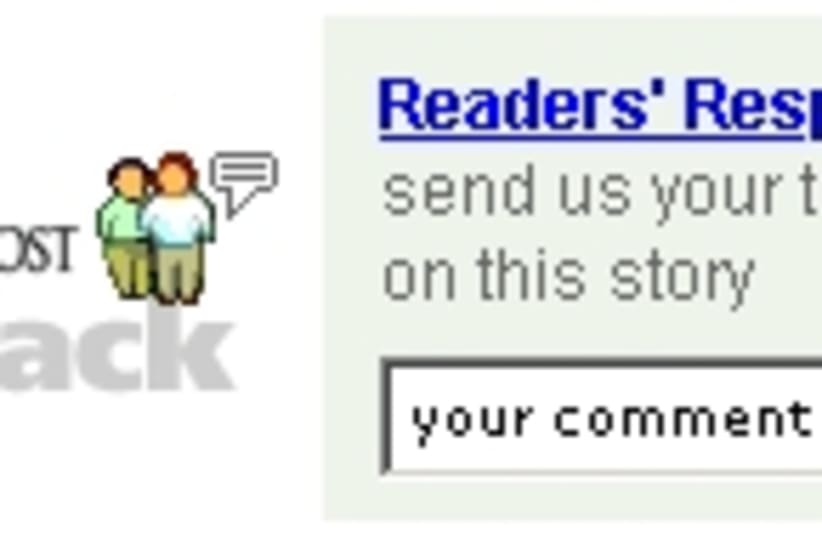Send us your comments >> Ralph Haglund, Lund, Sweden: Israel having nothing physically to do with the terrorists? Tell that to the market goers in Hadera. Sharon knows what he is doing? Meaning he intentionally stranded almost 10,000 deported Jews from Gaza and still keep them in that situation. Agree that the Palestinians should get their electricity, water, jobs and money from their own work and meanwhile borrow from the surrounding Arab countries, while they cultivate their food in the greenhouses that rich American Jews bought for them in Gaza. EU - start reading some stories how England behaved in the Mandate during the thirties and forties against the Jews. Ronny Schnapp, Canberra, Australia: Sharon knows what he's doing even if no one else does. Now that Israel will have nothing physically to do with the terrorists' lair that is Gaza, let's hope that the next stage of disengagement is a disengagement of the Palestinians' reliance on Israeli sources of electricity, water, jobs and money. Val Phillips, USA: Charles Applebaum seems to think Israel should just continue with the same old policies. Sharon was touted as the hardest of hardliners but he turned out to be a great visionary who is able to understand that changes are needed if Israel is to be secure. He understands that closing all the borders and killing Parisians terrorist and non-terrorist have not made Israel any safer and a new path must be found. That new path is the path of peace and not the same old path that Charles Applebaum and Benjamin Netanyahu seem to favor. Charles Applebaum, Parsippany, NJ, USA: I don't understand what Sharon is doing. He seems to be giving in to everything anyone demands of Israel. The EU has always been hostile towards Israel, with anti-Semitism increasing daily in most European countries. Egypt, as I expected, merely stands by while Pals come and go as they please, assumingly bringing in all types of weapons and terrorists. Why does Israel continue to trust those openly hostile to its existence?
| More about: | Rafah Border Crossing, Canberra, Benjamin Netanyahu, James Wolfensohn |
